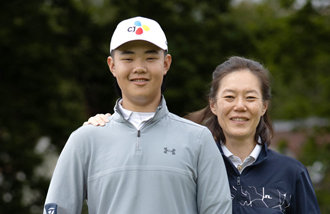Report Analyzes Remarriage Chances
Lee (38, female) works at a private school in the Seoul metropolitan district. Widowed seven years ago, she started going on dates since spring last year, but shed tears secretly.
Though men were interested in her graduate level education and her occupation as a teacher, they would lose interest when she mentioned that she lives with her son who is attending elementary school.
She remarried a civil servant in the 8th level (age 43) in October last year despite opposition from her relatives. Though the situation was not optimal, she chose a person who sincerely accepted her son.
The increase in divorces and westernization of perceptions led to the remarriage of 126,438 people last year (59,772 men and 66,666 women), reflecting the high increase in remarriages.
But blood linearity is still a strong factor, and actual statistics show that widows and female divorcees are placed at a severe disadvantage in remarriages.
The Dong-A Ilbo analyzed data from 1999 to 2006 acquired by the marriage consulting company Sunoo on 1,014 remarriages or couples considering remarriages with Dr. Yoo Sung-ryeol, a professor in the Division of Social Welfare at Baekseok University located at South Chungcheong Province, using the Computer-Assisted Reporting (CAR) method.
According to the analysis, women that have given birth but do not raise their children remarry or date men with an average annual salary of 70,630,000 won. But with one son the average drops to 57,400,000 won. With one daughter the average rate was 62,690,000 won.
The result is based on statistical analysis on the conditions that marriage candidates would like in their counterparts, how marriage consultancies assess the rank of the candidates, and male counterparts and their average salaries.
For the average woman who is looking to remarry without resorting to the marriage consultancies, the gap is likely to be greater. Marriage consultancies that look to increase the rate of success exclude from their membership women that do not possess such conditions as high income or education levels, physical attractiveness, or who raise sons or two children or more.
Lee Hee-gil, director of the Korea Institute of Marriage Culture, pointed out that men instinctively reject the fact that by marrying a woman raising a son, his property may fall into the hands of the child that does not share his blood.
Women are the weaker sex in the market of remarriages. According to those analyzed, the average annual salary of men who remarried women who earned less than 20,000,000 won per annum was 55,930,000 won with assets of 410,000,000 won. On the other hand the average annual salary of men who remarried women who earned 20,000,000 to 30,000,000 won per annum was lower, 53,800,000 won with assets of 240,000,000 won.
The data shows that women with the ability to support themselves financially observe other conditions, but those less fortunate look to economic power as their utmost priority.
Dr. Lee Myung-jin, professor in the College of Social Sciences at Kookmin University, said women are more likely to have an occupation and split assets, but Korean female divorcees still experience financial difficulties, and that that is why men are more influential in the market of remarriages rather than first marriages.
peacechaos@donga.com imsun@donga.com





